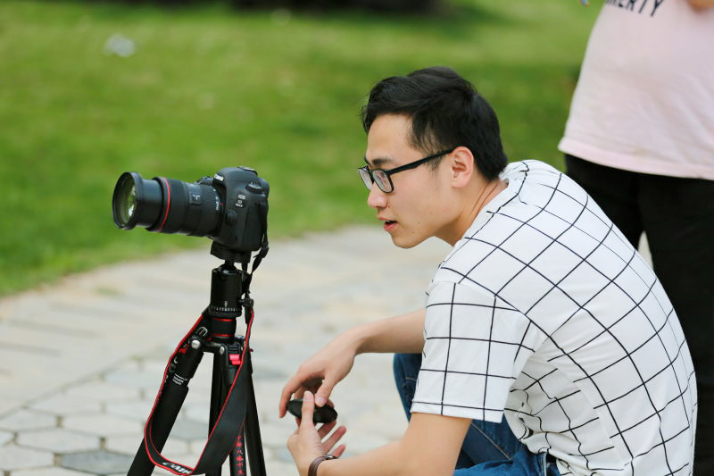|
||||||||||
| Home Nation World Business Opinion Lifestyle ChinAfrica Multimedia Columnists Documents Special Reports |
|
||||||||||
| Home Nation World Business Opinion Lifestyle ChinAfrica Multimedia Columnists Documents Special Reports |
| ChinAfrica |
| Crossing Cultural Barriers |
| How to effectively cross cultural barriers |
| By Xia Yuanyuan | VOL.10 March 2018 ·2018-03-15 |

Understanding and Respecting the Difference
Chen Yuan, a 24-year-old Chinese postgraduate studying at The Institute of African Studies of Zhejiang Normal University
In the past year, I have participated in making two documentary projects themed on China-Africa cooperation. Many of my colleagues and interviewees are Africans, which gave me a chance to approach their lives. To shoot the latest documentary, I spent a month in Africa to experience African people's real life. In this process, I deeply felt the cultural differences between China and Africa.
Cultural barriers are derived from cultural differences in intercultural communication. A major problem for people with different cultural backgrounds is to take it for granted that there is no difference between each other in the process of communication. Once it is found that the behavior of the other person is far from one's own behavior and one's own expectations, it will be confusing and disappointing, resulting in the failure of intercultural communication.
Therefore, understanding the difference is the first step to cross the cultural barrier. In my experience, Chinese people speak in a more tactful way, and do things more directly. But Africans behave opposite to this. So I will tell my African colleagues how Chinese people work, and let them know our working rhythm and working methods beforehand. I will ask their opinions, so we can negotiate a result that we all accept.
In addition, language is also a barrier. When I was filming a documentary in Africa, the first thing was to learn the local language. I said hello every day to local people in Swahili. And our relationships became closer.
The best way to overcome cultural barriers is to adapt to each other's culture. Even if we do not completely fit in, I will respect their cultural differences. This experience in intercultural communication has contributed to my success in Africa.

When in Rome...
Allen Chimombe, a 38-year-old Zimbabwean MA student studying at Communication University of China
An adventurous spirit and good interpersonal skills are essential ingredients for enjoying cultures that differ from ours. Culture describes the way communities share meanings about their community and the world around them. Cultural barriers are those deterrent factors we experience in trying to understand and participate in the norms and values commonly shared by communities or groups to which we do not belong.
There are, inevitably, plenty of external barriers that close access to different cultures. However, sometimes the journey to experiencing unfamiliar cultures is closed by our own minds. Our attitudes may reflect the information we have accumulated about others, which makes us approach unfamiliar cultures with familiar prejudice. An open mind is essential; and exposure to information from reliable sources about things we do not understand about others helps in this process. Following the important "when in Rome, do as the Romans do" rule is cardinal in transcultural interaction, and familiarizing with local customs through making local friends helps.
Insiders can unlock the doors to experiencing the local culture, provided you are willing to experience and participate in the available cultural activities. Learning culture by observing from afar sounds safe, but participatory or immersive learning brings a more intimate understanding of the local cultures. Keen observations and asking the relevant people the relevant questions may open up numerous closed doors. This can be more fun if done with a local friend acting as a translator since language is one of those major cultural learning challenges.
Like any other learning, there are bound to be some mistakes along the way, but these should not act as a deterrent. Additionally, be willing to laugh at yourself, and try out new things regularly whilst being respectful and sensitive to your hosts. You should, therefore, be ready and amenable to correction without having to compromise your personal safety. There are many cultural barriers around us, but the hardest are those we have erected in our own minds. Only when we remove the negative information we have accumulated about others, do we move closer toward tearing many of our perceived cultural boundaries.
| About Us | Contact Us | Advertise with Us | Subscribe |
| Copyright Beijing Review All rights reserved 京ICP备08005356号-5 京公网安备110102005860号 |